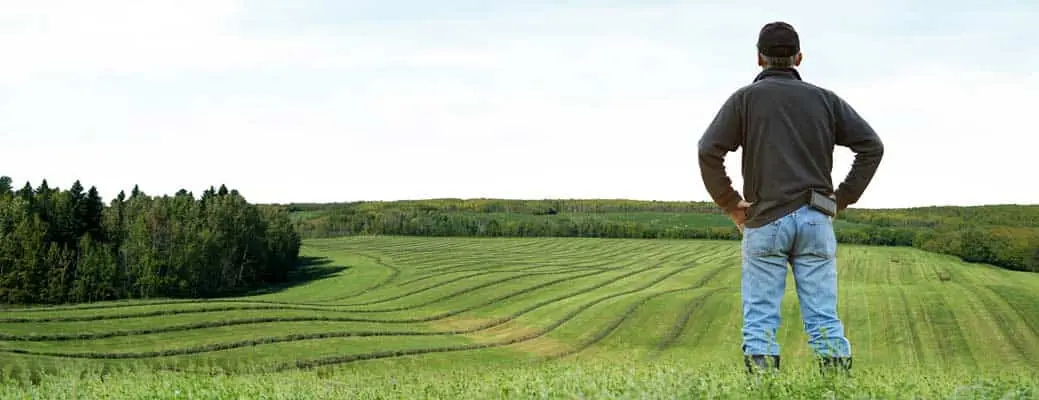Understanding the Value of Farmland: Owning vs. Leasing


Back in 1909, Up-To-The Times Magazine attributed a quote to a Wyoming cowboy: “The Lord ain’t makin’ no more land, and the feller that wants a farm better get it quick.” Sentiments like that make it sound like buying farmland is always the right choice.
But sometimes, the decision isn’t so straightforward. When you’re considering whether to lease or own farmland, you need to know how much farmland is worth. That means you need to know how to determine farmland values. And when you’re asking, “How much does a farm cost?,” you need to evaluate the size of the property, the buildings it includes and whether they will be suitable for you and the community where you’ll be living.
Keep in mind, it’s not an all-or-nothing decision. Many farmers find that a blend of purchased and leased land is ideal for them.
Does farmland appreciate in value? While you’ll need to research trends in your area, often farmland values rise. When you own your farmland, the primary benefit is that you build equity. And that equity isn’t just valuable on its own — you can use it as collateral for borrowing to expand your farm. You also don’t have to worry about losing your lease when you own farmland. And you’re in control of all the decisions regarding your land, including what to grow, what conservation practices to use and how to amend your soil.
It can be expensive to buy farmland, and the payments you need to make can limit the cash you have available for other purchases. Or, if you keep your payments manageable, you might not be able to afford as much land as you need. When you’re evaluating the different ways you can use your money, you may find that buying machinery or livestock are better financial options than owning land.
Leasing is more flexible than owning. Leases often last for a year, so if you need to adjust the size of your farm, you can usually add or give up leases as they expire. And, if you’re a new farmer and you’re leasing from an experienced farmer who has worked the land, they can share the knowledge they’ve gained.
You don’t build equity when you lease land, so you might not have as much collateral available for borrowing. You also don’t know whether your landlord will renew your lease every year, so there’s an element of uncertainty.
Choosing whether to lease or own farmland is just one part of the overall financial picture for your farm and your family. Talk to a Farm Bureau agent near you to help plan for your farm’s future and protect your investment.